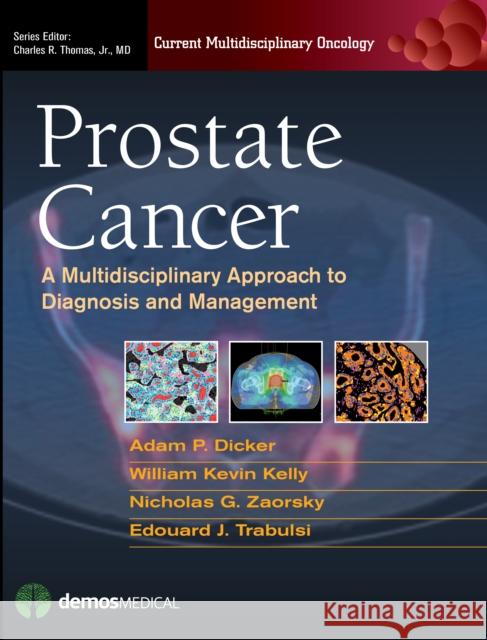Prostate Cancer: A Multidisciplinary Approach to Diagnosis and Management » książka
Prostate Cancer: A Multidisciplinary Approach to Diagnosis and Management
ISBN-13: 9781936287598 / Angielski / Twarda / 2014 / 400 str.
"This book admirably covers prostate cancer. It is written in an easily digestible manner for non-experts and emphasizes the importance of a team approach to treatment of patients with this disease."--Doody's Reviews With an emphasis on multidisciplinary collaboration and decision-making, this practical resource reflects the extraordinary advances in the treatment of prostate cancer during the past five years. Approximately thirty international, leading-edge investigators describe the most current evidence-based approaches to prostate cancer treatment. The book provides a comprehensive view of the entire spectrum of prostate cancer management from initial screening through novel and experimental treatments that have the potential for a major impact on practice. The book first reviews fundamental issues including epidemiology, screening, risk reduction, diagnosis and pathologic characterization, staging, and imaging. This includes strategies for improving the accuracy of PSA screening and an update on controversies surrounding the ISUP Modified Gleason Score. The book covers novel molecular and genotype profiling in prostate cancer, including morphometric and systems pathology. Detailed information is provided on radiographic imaging for diagnosis and staging. The treatment sections of the book correspond to the staging of disease. The treatment of localized disease addresses the range of multidisciplinary management options including a discussion of prostate cancer's impact on the quality of life. A detailed review of multimodal therapies (medical, surgical, and radiologic) addresses the treatment of localized advanced disease, and coverage of advanced metastatic prostate cancer reviews current management options including a range of promising novel and experimental agents. The book also discusses counseling the high-risk patient. Several chapters incorporate models of care delivery, patient navigation for multidisciplinary care, genomic and risk assessment, and comparative effects of research in treatment decision-making. The book is designed as a management text for all health care professionals who provide care for prostate cancer patients as well as patients, families, and advocates. Extensive references offer opportunities for additional study. Key Features:
- Delineates a practical, concise approach to multidisciplinary management of prostate cancer
- Provides a wide range of perspectives and expertise
- Written and edited by an international, multidisciplinary team of prostate cancer specialists
- Focuses on such key issues as special populations, screening controversies, patient counseling, and quality of life
- Includes discussion of important emerging topics such as gene profiling and targeted therapies and comparative effectiveness data











